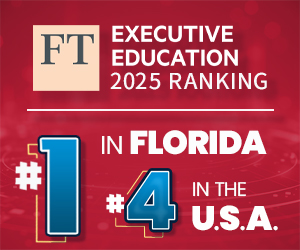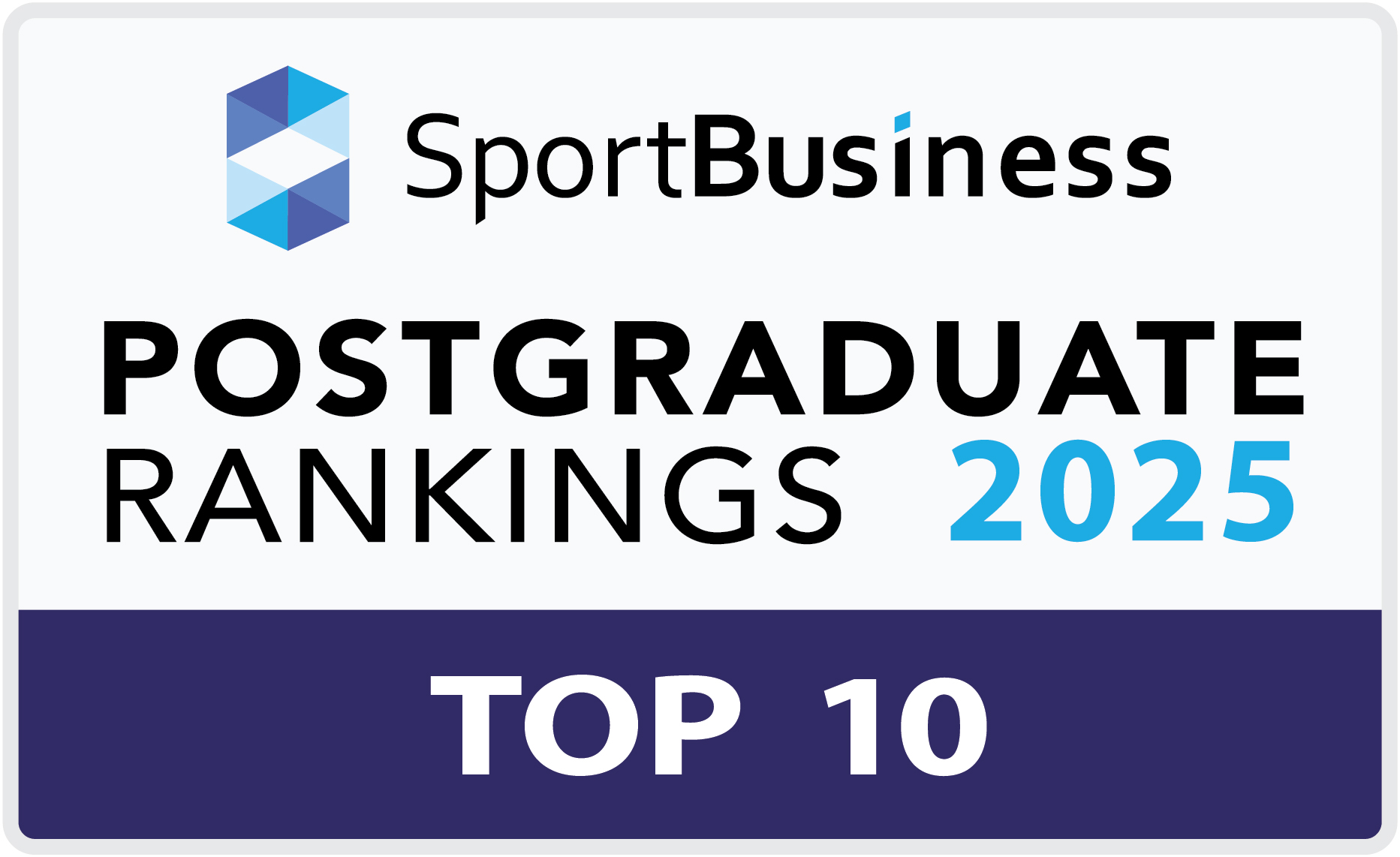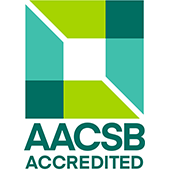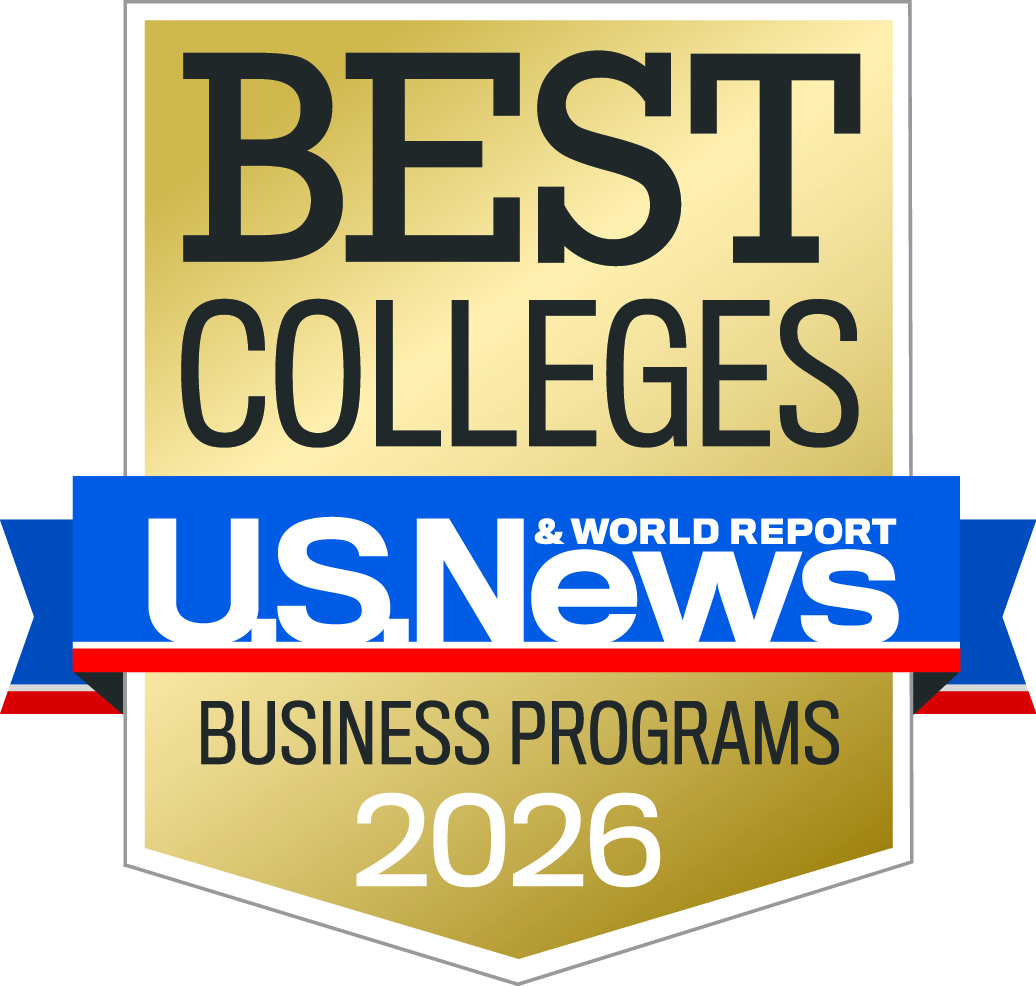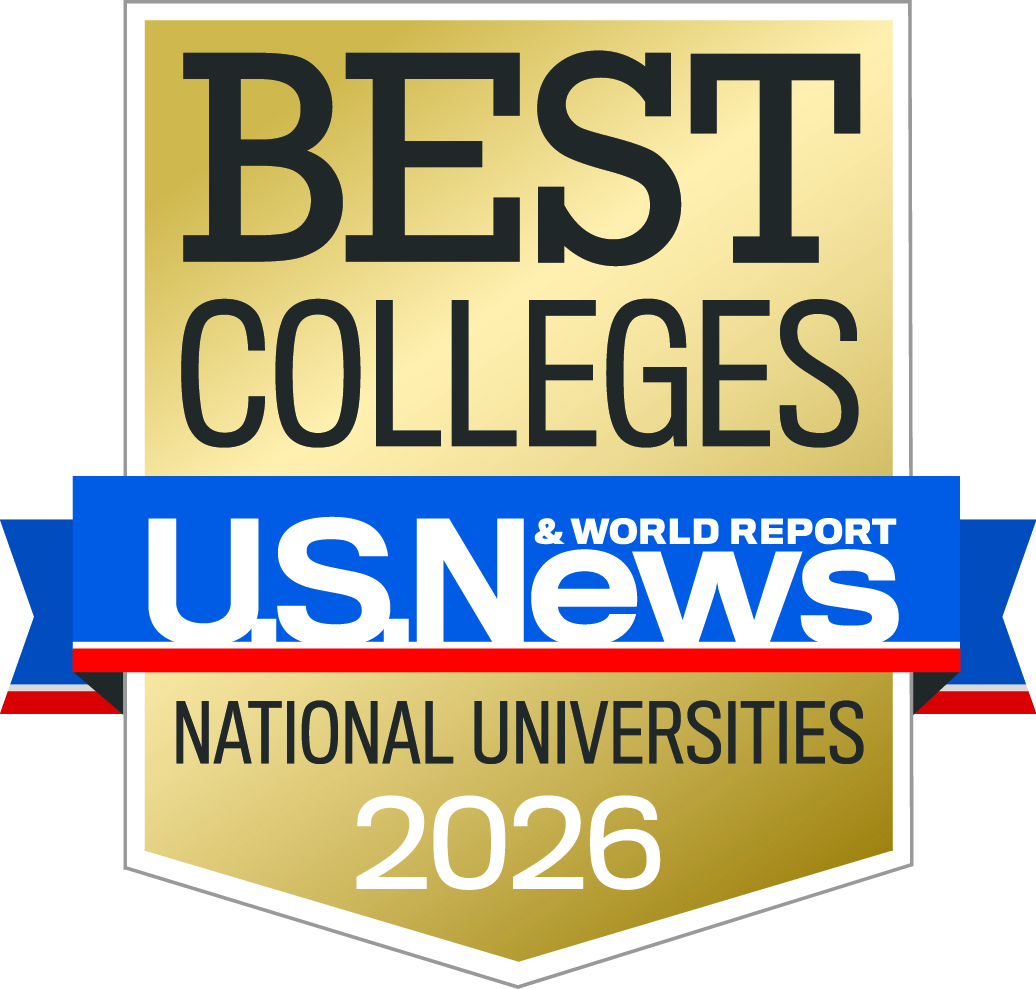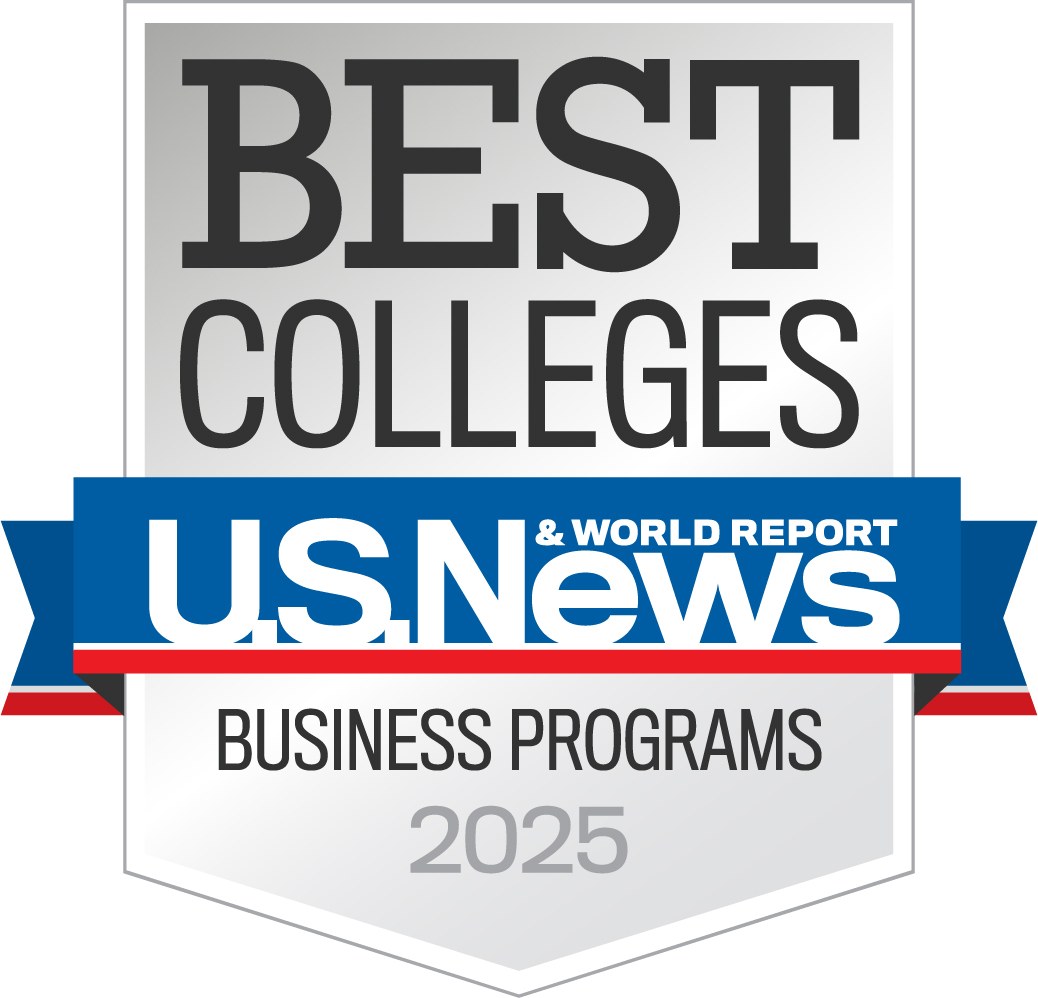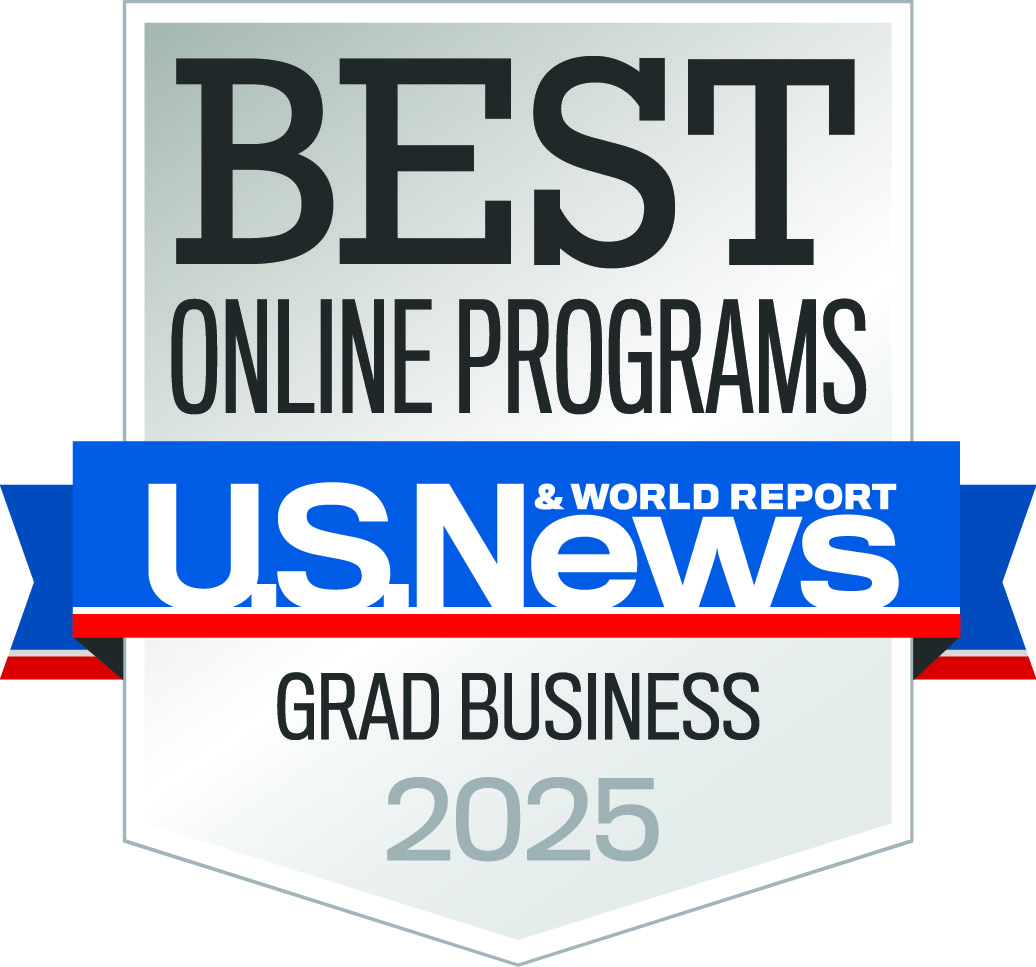
Executive Master of Accounting (EMAC) Digital Accounting Forensics and Data Analytics Concentration

The Executive Master of Accounting (EMAC) with a concentration in Digital Accounting Forensics and Data Analytics (DAFDA) prepares students to navigate the latest technology in the rapidly evolving digital landscape in accounting. The concentration delves into technology for predictive modeling, data visualization, and business intelligence. Students acquire the necessary skills to make data-driven decisions in the accounting field by accessing cutting-edge tools and resources, providing a competitive edge in the job market.
Aspiring accountants with a strong interest in both Fraud Examination and Data Analytics can combine Forensic Accounting and Digital Accounting Forensics and Data Analytics for a dual concentration. Whether you aspire to work in corporate investigations, litigation support, regulatory compliance, or with big data analytics, our reputable program will provide the essential tools to advance your career. Combining both concentrations allows you to expand and leverage your knowledge for a more competitive advantage.
Most students complete the program in two years while working full-time, although students with an undergraduate degree in accounting have the option of completing the program in as few as three semesters. The curriculum allows non-accounting undergraduate degreed students to complete the program by taking two additional courses built into the schedule. Therefore, prerequisites are not required outside of the program. Digital Accounting Forensics and Data Analytics can be merged with Forensic Accounting for a dual concentration by completing 2 - 3 additional courses. The Dual concentration can be selected before or during the program.
The program aims to provide flexibility and engagement by offering a combination of fully online, live-virtual and optional in-person once-a-month, to accommodate students’ commitments and preferences. Students can choose to attend the lectures synchronously and asynchronously. Those unable to join us once-a-month in person, or attend the live sessions on Saturdays, can still access the lecture recordings and benefit from the same content to complete the program 100% online. Attend your way!
Attendance Format:
- Fully Online: Access to recorded lectures 24/7
- Asynchronous, no set times for class attendance
- Live-Streamed: Weekly live-streamed lectures on Saturday mornings from anywhere around the world
- On-Campus: Attend optional in-person lectures (3 - 4 times per semester) on our Davie Campus once-a-month on Saturday (requires health immunization forms)
- Combine all three options at no extra cost to you
Program Duration:
- 12 – 32 months (1 - 2 1/2 years)
- 10 – 12 courses / 30 - 36 credits
Course Schedule and Time:
- Fall semesters: 2 courses (16 weeks)
- Spring semesters: 2 courses (16 weeks)
- Summer semesters: 1 course (12 weeks)
- Saturdays: 9:00 AM – 1:15 PM
- Lecture duration: 1 hour and 15 minutes per course
Optional Once-a-month Class Location:
- Join us on the FAU Davie Campus, in the state-of-the-art Davie West Facility
- Breakfast and lunch included
Digital Accounting Forensics & Data Analytics Curriculum
Accounting Major
Business Valuation for Forensic Accountants (ACG 6375) 3 credits
Prerequisites: Admission to College of Business master's program and ACG 2021 or ACG 6027.
An introductory course designed to provide a solid foundation for students entering
the business valuation profession. Course introduces business valuation theory, research
methodology, economic and industry analysis, the asset approach, and other introductory
topics as well as valuation report writing.
Advanced Accounting Information Systems (ACG 6475) 3 credits
Prerequisites: Admission to master's program in Accounting or permission of instructor
and ACG 2021 or ACG 6027. Prerequisite or Corequisite: ACG 6376.
The study of computerized accounting information systems with emphasis on reporting
objectives, management needs, transaction trails, documentation, security, internal
controls, and the integration of accounting systems in the evaluation and selection
of software. Systems analysis techniques are discussed using the systems development
life cycle model.
Advanced Auditing Theory and Practice (ACG 6655) 3 credits
Prerequisites: Admission to College of Business master's program and ACG 4651 or ACG
6635.
A study of the concepts, assumptions, standards, and issues related to contemporary
auditing theory and practice.
Accounting Fraud Examination Conduct and Procedures (ACG 6687) 3 credits
Prerequisites: Admission to College of Business master's program and ACG 2021 or ACG
6027.
Emphasis on the conduct of fraud examinations, including a discussion of specific
procedures used in forensic accounting examinations and the reasoning behind the use
of these procedures. Coverage extends to detection, investigation, and prevention
of specific types of fraud committed against organizations and individuals.
*Concepts of Federal Income Tax (TAX 6025) 3 credits
Prerequisites: Admission to College of Business master's program and ACG 2021 or ACG
6027.
Analysis of the principles of the Federal Income Tax. The relationship among statutes,
case law, Congressional committee reports, and administrative pronouncements is emphasized.
A case approach is used. This course is not available to students who have completed TAX 4001 and 4011.
Or
*ACG 6689 is substituted for TAX 6025
Forensic Accounting, Fraud and Taxation (ACG 6689) 3 credits
Prerequisites: ACG 2021 or ACG 6027.
Overview of the nature of tax fraud, its motivation, the manner by which it is effected,
and ways to detect this type of fraud. Also discussed is the proper manner in which
allegations of fraud should be investigated to meet the requirements of civil/criminal
court procedure.
Advanced Accounting Applications of Data Analytics (ACG 6496) 3 credits
Prerequisites: Admission to master's program; ACG 6686 or ACG 6635 or equivalent;
and QMB 3600 or equivalent.
Advanced applications of data analytics in auditing, forensic accounting, fraud examination
and financial statement analysis.
Advanced Digital Forensics in Forensic Accounting (ACG 6498) 3 credits
Prerequisites: ACG 6686 and enrollment in School of Accounting Executive Programs.
Introduces students to professional accounting engagements involving the application
of computer forensics to the discovery, acquisition, analysis and reporting of digital
evidence. Emphasis is placed on gaining knowledge of and proficiency in using software
tools and General Audit Software (GAS) as part of the investigation and case management
processes.
IT Auditing (ACG 6625) 3 credits
Prerequisite: Admission to College of Business master's program and ACG 4651 or ACG
6635.
A survey of control and auditing techniques employed in computer-based accounting
systems.
Accounting Fraud Examination Concepts (ACG 6686) 3 credits
Prerequisites: Admission to College of Business master's program and ACG 2021 or ACG
6027.
Overview of the nature of occupational fraud and how it is committed including an
introduction to the actions that can be taken to determine the presence of occupational
fraud and the procedures that can be implemented to deter it. Also covered is the
proper manner in which allegations of fraud should be investigated to meet the requirements
of civil/criminal court procedure.
Communication Strategies for Professional Accountants (ACG 6396) 3 credits
Prerequisite: Admission to master's program in Accounting
This course places students in a semester‐long project that simulates situations encountered
by accountants in their careers. It prepares them to respond strategically and professionally
to various stakeholders to: (a) think critically, (b) write accurately and concisely,
and (c) speak effectively and confidently
___________________________________________________________________
Two additional classes taken for Dual Concentration in Digital Accounting Forensics
and Data Analytics and Forensic Accounting:
Interviewing for Forensic Accountants and Auditors (ACG 6685) 3 credits
Prerequisites: Enrollment in School of Accounting Executive Programs and ACG 6635
or ACG 4651 or permission of academic director.
A study of the concepts, assumptions, approaches and issues related to obtaining information
from knowledgeable persons for use in determining the fairness of the presentation
of financial information, e.g., financial statements, and conducting forensic accounting
examinations.
Forensic Accounting and the Legal Environment (ACG 6688) 3 credits
Prerequisites: Admission to master's program and ACG 2021 or ACG 6027.
Emphasis on Federal legislation related to fraud examinations including coverage of
laws that preserve the rights of individuals suspected of committing fraud and laws
that govern civil and criminal prosecutions, the admittance of evidence, and the testimony
of expert witnesses.
Business Major
Financial Reporting and Accounting Concepts (ACG 6137) 3 credits
Prerequisites: Admission to College of Business master's program and ACG 2021 or ACG
6027.
Course covers conceptual and applied issues in financial accounting. Students learn
to apply basic research skills in financial accounting with authoritative accounting
literature. This course is not available to students who have completed ACG 3131 and 3141.
Cost Accounting Theory and Practice (ACG 6347) 3 credits
Prerequisites: Admission to College of Business master's program and ACG 2021 or ACG
6027.
Accounting topics for managers, including budgeting, performance measurement, cost
analysis, balance scorecards, activity-based costing, and cost functions. This course is not available to students who have completed ACG 3341.
Auditing Theory and Practice (ACG 6635) 3 credits
Prerequisites: Admission to College of Business master's program and ACG 4401 or ACG
6475 and ACG 3141 or ACG 6137.
A study of the role of audits in society, the regulations of the auditing profession,
current issues in the profession, and the conduct of an attestation engagement. This course is not available to students who have completed ACG 4651.
Advanced Accounting Information Systems (ACG 6475) 3 credits
Prerequisites: Admission to master's program in Accounting or permission of instructor
and ACG 2021 or ACG 6027. Prerequisite or Corequisite: ACG 6376.
The study of computerized accounting information systems with emphasis on reporting
objectives, management needs, transaction trails, documentation, security, internal
controls, and the integration of accounting systems in the evaluation and selection
of software. Systems analysis techniques are discussed using the systems development
life cycle model.
Concepts of Federal Income Tax (TAX 6025) 3 credits
Prerequisites: Admission to College of Business master's program and ACG 2021 or ACG
6027.
Analysis of the principles of the Federal Income Tax. The relationship among statutes,
case law, Congressional committee reports, and administrative pronouncements is emphasized.
A case approach is used.
Advanced Accounting Applications of Data Analytics (ACG 6496) 3 credits
Prerequisites: Admission to master's program; ACG 6686 or ACG 6635 or equivalent;
and QMB 3600 or equivalent.
Advanced applications of data analytics in auditing, forensic accounting, fraud examination
and financial statement analysis.
Advanced Digital Forensics in Forensic Accounting (ACG 6498) 3 credits
Prerequisites: ACG 6686 and enrollment in School of Accounting Executive Programs.
Introduces students to professional accounting engagements involving the application
of computer forensics to the discovery, acquisition, analysis and reporting of digital
evidence. Emphasis is placed on gaining knowledge of and proficiency in using software
tools and General Audit Software (GAS) as part of the investigation and case management
processes.
IT Auditing (ACG 6625) 3 credits
Prerequisite: Admission to College of Business master's program and ACG 4651 or ACG
6635.
A survey of control and auditing techniques employed in computer-based accounting
systems.
Accounting Fraud Examination Concepts (ACG 6686) 3 credits
Prerequisites: Admission to College of Business master's program and ACG 2021 or ACG
6027.
Overview of the nature of occupational fraud and how it is committed including an
introduction to the actions that can be taken to determine the presence of occupational
fraud and the procedures that can be implemented to deter it. Also covered is the
proper manner in which allegations of fraud should be investigated to meet the requirements
of civil/criminal court procedure.
Communication Strategies for Professional Accountants (ACG 6396) 3 credits
Prerequisite: Admission to master's program in Accounting.
This course places students in a semester‐long project that simulates situations encountered
by accountants in their careers. It prepares them to respond strategically and professionally
to various stakeholders to: (a) think critically, (b) write accurately and concisely,
and (c) speak effectively and confidently.
___________________________________________________________________
Three additional classes taken for Dual Concentration in Digital Accounting Forensics
and Data Analytics and Forensic Accounting:
Accounting Fraud Examination Conduct and Procedures (ACG 6687) 3 credits
Prerequisites: Admission to master's program and ACG 2021 or ACG 6027.
Emphasis on the conduct of fraud examinations, including a discussion of specific
procedures used in forensic accounting examinations and the reasoning behind the use
of these procedures. Coverage extends to detection, investigation, and prevention
of specific types of fraud committed against organizations and individuals.
Forensic Accounting and the Legal Environment (ACG 6688) 3 credits
Prerequisites: Admission to master's program and ACG 2021 or ACG 6027.
Emphasis on Federal legislation related to fraud examinations including coverage of
laws that preserve the rights of individuals suspected of committing fraud and laws
that govern civil and criminal prosecutions, the admittance of evidence, and the testimony
of expert witnesses.
Business Valuation for Forensic Accountants (ACG 6375) 3 credits
Prerequisites: Admission to master's program and ACG 2021 or ACG 6027.
An introductory course designed to provide a solid foundation for students entering
the business valuation profession. Course introduces business valuation theory, research
methodology, economic and industry analysis, the asset approach, and other introductory
topics as well as valuation report writing.
Non-Business Major
Financial Accounting Concepts (ACG 6027) 3 credits
Prerequisite: Graduate standing.
Principles applicable to the accounting cycle, asset valuation, income determination,
financial reporting, basic business taxes, and owner's equity. Available only to graduate students lacking an undergraduate course in accounting
(ACG 2021).
Financial Management (FIN 6406) 3 credits
Prerequisites: Graduate standing, financial accounting principles.
Tools and applications of financial analysis and forecasting, investment policy, financing
policy, and working capital policy. Open only to graduate students lacking an undergraduate course in Finance (FIN 3403).
Financial Reporting and Accounting Concepts (ACG 6137) 3 credits
Prerequisites: Admission to College of Business master's program and ACG 2021 or ACG
6027.
Course covers conceptual and applied issues in financial accounting. Students learn
to apply basic research skills in financial accounting with authoritative accounting
literature. This course is not available to students who have completed ACG 3131 and 3141.
Cost Accounting Theory and Practice (ACG 6347) 3 credits
Prerequisites: Admission to College of Business master's program and ACG 2021 or ACG
6027.
Accounting topics for managers, including budgeting, performance measurement, cost
analysis, balance scorecards, activity-based costing, and cost functions. This course is not available to students who have completed ACG 3341.
Auditing Theory and Practice (ACG 6635) 3 credits
Prerequisites: Admission to College of Business master's program and ACG 4401 or ACG
6475 and ACG 3141 or ACG 6137.
A study of the role of audits in society, the regulations of the auditing profession,
current issues in the profession, and the conduct of an attestation engagement. This course is not available to students who have completed ACG 4651.
Advanced Accounting Information Systems (ACG 6475) 3 credits
Prerequisites: Admission to master's program in Accounting or permission of instructor
and ACG 2021 or ACG 6027. Prerequisite or Corequisite: ACG 6376.
The study of computerized accounting information systems with emphasis on reporting
objectives, management needs, transaction trails, documentation, security, internal
controls, and the integration of accounting systems in the evaluation and selection
of software. Systems analysis techniques are discussed using the systems development
life cycle model.
Concepts of Federal Income Tax (TAX 6025) 3 credits
Prerequisites: Admission to College of Business master's program and ACG 2021 or ACG
6027.
Analysis of the principles of the Federal Income Tax. The relationship among statutes,
case law, Congressional committee reports, and administrative pronouncements is emphasized.
A case approach is used.
Advanced Accounting Applications of Data Analytics (ACG 6496) 3 credits
Prerequisites: Admission to master's program; ACG 6686 or ACG 6635 or equivalent;
and QMB 3600 or equivalent.
Advanced applications of data analytics in auditing, forensic accounting, fraud examination
and financial statement analysis.
Advanced Digital Forensics in Forensic Accounting (ACG 6498) 3 credits
Prerequisites: ACG 6686 and enrollment in School of Accounting Executive Programs.
Introduces students to professional accounting engagements involving the application
of computer forensics to the discovery, acquisition, analysis and reporting of digital
evidence. Emphasis is placed on gaining knowledge of and proficiency in using software
tools and General Audit Software (GAS) as part of the investigation and case management
processes.
IT Auditing (ACG 6625) 3 credits
Prerequisite: Admission to College of Business master's program and ACG 4651 or ACG
6635.
A survey of control and auditing techniques employed in computer-based accounting
systems.
Accounting Fraud Examination Concepts (ACG 6686) 3 credits
Prerequisites: Admission to College of Business master's program and ACG 2021 or ACG
6027.
Overview of the nature of occupational fraud and how it is committed including an
introduction to the actions that can be taken to determine the presence of occupational
fraud and the procedures that can be implemented to deter it. Also covered is the
proper manner in which allegations of fraud should be investigated to meet the requirements
of civil/criminal court procedure.
Communication Strategies for Forensic Accountants (ACG 6376) 3 credits
Prerequisite: Admission to master's program in Accounting.
Course focuses on the writing aspects of forensic accounting; it considers writing
as an integral part of forensic accounting and as an enhancement for critical thinking.
___________________________________________________________________
Three additional classes taken for Dual Concentration in Digital Accounting Forensics
and Data Analytics and Forensic Accounting:
Accounting Fraud Examination Conduct and Procedures (ACG 6687) 3 credits
Prerequisites: Admission to master's program and ACG 2021 or ACG 6027.
Emphasis on the conduct of fraud examinations, including a discussion of specific
procedures used in forensic accounting examinations and the reasoning behind the use
of these procedures. Coverage extends to detection, investigation, and prevention
of specific types of fraud committed against organizations and individuals.
Forensic Accounting and the Legal Environment (ACG 6688) 3 credits
Prerequisites: Admission to master's program and ACG 2021 or ACG 6027.
Emphasis on Federal legislation related to fraud examinations including coverage of
laws that preserve the rights of individuals suspected of committing fraud and laws
that govern civil and criminal prosecutions, the admittance of evidence, and the testimony
of expert witnesses.
Business Valuation for Forensic Accountants (ACG 6375) 3 credits
Prerequisites: Admission to master's program and ACG 2021 or ACG 6027.
An introductory course designed to provide a solid foundation for students entering
the business valuation profession. Course introduces business valuation theory, research
methodology, economic and industry analysis, the asset approach, and other introductory
topics as well as valuation report writing.
Supercharge Your Career: Obtain Today’s High Demand Accounting Skills
According to a recent survey published by Robert Half (NYSE symbol RHI, one of the top professional staffing services in the world) the top in-demand attributes for accountants involve data analytics. The volume, variety, and velocity of data flowing through organizations has reached staggering levels. About 2.5 exabytes of data are being created every day, and current estimates suggest that this number will double approximately every 3 1/2 years. According to EY (one of the Big-4 accounting firms), “Without big data analytics, companies are blind and deaf, meandering aimlessly like a deer on freeway.” According to KPMG (another Big-4 accounting firm), audit methodology only fully becomes mature when data analytics are effectively and consistently used for strategic analysis, enterprise risk assessment, internal audit plan development, execution and reporting, and continuous improvement.
For this reason, accounting firms are investing heavily in descriptive, diagnostic, predictive, and prescriptive data analytics. For example, Deloitte (another Big-4 accounting firm) has adopted Tableau, a leading data analytics platform, firm-wide. Likewise, the SEC and FINRA have built entire divisions devoted to data analytics. Via the big-data revolution, old-fashioned, simple financial analysis tools have been supplanted by more sophisticated tools based around the latest available technology. The new tools blend (or “fuse”) together both hard (financial) data and soft data, including data from email, social media content, videos, and narrative reports. Given the fused data, special analytical tools are applied, including sentiment analysis, social network analysis, tag clouds, content clustering, data visualization techniques, and interactive dashboards.
Gain a Competitive Edge!!!
Why get an ordinary EMAC degree when you can get one with a concentration in Digital Accounting Forensics and Data Analytics? Get the white-hot skills that are in high demand in all areas of accounting, including forensic accounting, auditing, management accounting, advisory services, governmental accounting, and taxation. Get ahead of the tsunami of change that is sweeping across all areas of accounting. Stand out from the crowd.
